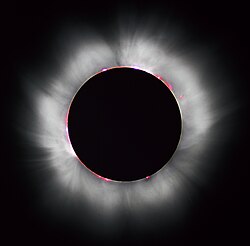Necessary and sufficient conditions
In science, the terms necessary and sufficient are often used. Some conditions are necessary, meaning that they are needed for something to happen, while others are sufficient, meaning that they are enough to make something happen.
Necessity
In logic, a necessary condition for a logical statement is a logical consequence of the statement, in the sense that if statement is true, then the condition must have held.[1]
Sufficiency
A sufficient condition for a statement is a logical precursor of the statement, in the sense that if the condition is true, then so will the statement.[1]
Mixed use of necessity and sufficiency
Generally, a sufficient condition for a statement needs not be a necessary condition for the same statement (and vice versa). This means that some sufficient conditions are not necessary, and that some necessary conditions are not sufficient.[2]
In logic, the term if and only if (shortened to iff) is often used to describe a condition that is both necessary and sufficient.[1]
Australian philosopher John Leslie Mackie introduced the term INUS condition. INUS stands for "insufficient, but necessary part of an unnecessary but sufficient condition".[3]
Necessary And Sufficient Conditions Media
The sun being above the horizon is a necessary condition for direct sunlight; but it is not a sufficient condition, as something else may be casting a shadow, e.g., the moon in the case of an eclipse.
That a train runs on schedule is a sufficient condition for a traveller arriving on time (if one boards the train and it departs on time, then one will arrive on time); but it is not a necessary condition, since there are other ways to travel (if the train does not run to time, one could still arrive on time through other means of transport).
Related pages
References
- ↑ 1.0 1.1 1.2 "The Definitive Glossary of Higher Mathematical Jargon". Math Vault. 2019-08-01. Retrieved 2020-10-08.
- ↑ Swartz, Norman. "The Concepts of Necessary Conditions and Sufficient Conditions". sfu.ca. Retrieved October 8, 2020.
- ↑ Brennan, Andrew (2017). Zalta, Edward N. (ed.). The Stanford Encyclopedia of Philosophy (Summer 2017 ed.). Metaphysics Research Lab, Stanford University.
+{{{1}}}−{{{2}}}



